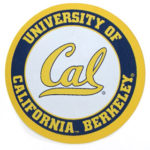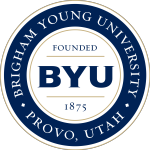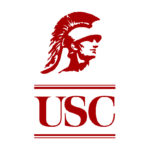 Our Best College Value Rankings highlights programs of study that represent the best values in education for your dollar. Programs chosen for this ranking are not only of reputably high quality, but that are affordable and pay off in the long run as well. At a time when the cost of a college education is higher than it has ever been, and a degree from a reputable school may be more important than ever, the stakes have never been higher when choosing a college. Our BCV rankings are here to help make this decision a little easier.
Our Best College Value Rankings highlights programs of study that represent the best values in education for your dollar. Programs chosen for this ranking are not only of reputably high quality, but that are affordable and pay off in the long run as well. At a time when the cost of a college education is higher than it has ever been, and a degree from a reputable school may be more important than ever, the stakes have never been higher when choosing a college. Our BCV rankings are here to help make this decision a little easier.
For our 2017 Master’s in Engineering ranking we have selected 50 regionally accredited colleges and universities of reputably high quality according to U.S. News and World Report We then rank these schools according to our weighted methodology that aggregates publicly available data including U.S. News scores, tuition rates, return on investment according to Payscale.com, graduation rates, and cohort default rates to produce an overall score of 1-100. The top 50 scoring programs are then listed in our ranking.
Perhaps more than any other field, engineering is about advancing the world and society through innovative solutions to the most pressing problems of the day. This requires individuals who are can think creatively and outside of existing paradigms of knowledge. A master’s degree in engineering from a top university can provide the necessary training and mentorship under leading faculty can help you gain mastery over your field of interest so you can push its boundaries and uncover new solutions to important problems. A Master’s degree will also provide vast resources and opportunities to perform valuable research and will open paths for career advancement in your current field of work and beyond. Choosing to pursue advanced training in engineering will provide significant return and increase your starting annual salary by as much as $10,000.
It should be noted that in building our ranking we take both in and out-of-state tuition into consideration. However, attending college in your state of residency will always be more affordable and ultimately provide a better return on investment than attending an out-of-state school. Where applicable, any program on this list offered through a public college or university that is in your state of residency should be considered among those at the top of the list.
Note: Tuition rates listed are estimates and total tuition costs will vary from student to student and program to program based on a number of factors.
#1. University of California Berkeley

Ranked #20 in “National Universities,” #3 in “Best Global Universities,” and #1 in “Top Public Schools,” the University of California Berkeley is widely recognized as one of the best public institutions of higher learning in the nation and the world. UC Berkeley is a public research university and the flagship campus of the University of California system. Located in the San Francisco Bay area, UC Berkeley is a desirable destination for incoming students for its proximity to beautiful landscapes such as the Santa Cruz Mountains, and the Muir Woods as well as the thriving city culture of San Francisco and Oakland.
The College of Engineering at UC Berkeley is widely considered among the top engineering schools in the world due to its dynamic, interdisciplinary hands-on approach to education and its commitment to challenge conventional thinking and promote creativity and imagination. Ranked #3 in “Best Graduate Engineering Schools” by U.S. News & World Report, the college aims to educate and inspire leaders for the global economy who can marshal strong entrepreneurial and management skills to match technological expertise. The college and offers Master’s programs in: Applied Science & Technology, Bioengineering, Civil & Environmental Engineering, Electrical Engineering & Computer Sciences, Industrial Engineering & Operations Research, Materials Science & Engineering, Mechanical Engineering, and Nuclear Engineering. The master’s in engineering takes two years to complete, but students can also opt for the accelerated program to complete the degree in just one year.
Accreditation: UC Berkeley is regionally accredited by the Western Association of Schools and Colleges.
Tuition
In-State: $22,440
Out-of-State: $52,644
#2. Texas A & M University College Station

Texas A & M University is one of the largest university systems in the country with the flagship campus at College Station enrolling over 64,000 students. Texas A & M is recognized by U.S. News as one of the top 30 public universities and it’s Dwight Look College of Engineering is ranked #11 in “Best Engineering Schools” Texas A&M is known as a high quality research institution offering unique programs through its 16 colleges and schools. College Station and the nearby town of Bryan offer a quaint college town atmosphere that is lively with lots to do. Football is a major part of the culture at TAMU and Sports Illustrated on Campus has ranked it among the top college football experiences.
The College of Engineering is the largest college on the Texas A&M campus with more than 350 faculty members and more than 15,000 engineering students in its 14 departments and is consistently ranked among the nation’s top public programs. The college seeks to provide engineering graduates who are well founded in engineering fundamentals, instilled with the highest standard of professional and ethical behavior, and prepared to meet the complex technical challenges of society. Graduate programs are offered in a wide variety of engineering disciplines including: Aerospace Engineering, Biological & Agricultural Engineering, Chemical Engineering, Civil Engineering, Computer Engineering, Electrical Engineering, Industrial Engineering, Nuclear Engineering, Ocean Engineering, Petroleum Engineering, and much more. TAMU features among the lowest tuition rates in our ranking and provides a highly reputable engineering education.
Accreditation: Texas A & M University is regionally accredited by the Southern Association of Colleges and Schools.
Tuition
In-State: $13,323
Out-of-State: $26,307
#3. Georgia Institute of Technology

Located in Atlanta, Georgia, Georgia Institute of Technology is a public institution that offers many amenities of a college in a large urban center. The university is one of the nation’s leading research universities with many top ranked programs of study. U.S. News & World Report rank Georgia Tech #36 in “National Universities,” #7 in “Top Public Schools,” and #13 in “Most Innovative Schools.” The graduate engineering programs are ranked #7 in “Best Engineering Schools” with many individual programs ranking in the top 10 of their kind. The city of Atlanta is a very desirable destination for students with a thriving food scene, festivals galore, and a beautiful landscape with more trees than any other major U.S. city.
The College of Engineering at GIT prepares its students not just for jobs in engineering, but for the responsibilities of leadership. It maintains a strong focus on innovation and entrepreneurship which gives students an edge allowing them to create inventions, start businesses, and design solutions to global problems even before graduation. Graduate degrees are offered in Aerospace Engineering, Biomedical Engineering, Chemical & Bimolecular Engineering, Civil & Environmental Engineering, Electrical & Computer Engineering, Materials Science & Engineering, Mechanical Engineering, and more. Among these the Aerospace, Industrial, and Biomedical programs are especially well regarded. The College’s excellent balance between its reputation for quality education, its return on investment, and its low cost make GIT’s engineering programs a great value.
Accreditation: The Georgia Institute of Technology is regionally accredited by the Southern Association of Colleges and Schools.
Tuition
In-State: $26,904
Out-of-State: $55,744
#4. University of Texas Austin

The University of Texas—Austin is one of the largest institutions of higher learning in the country and is considered to be one of the “Public Ivies,” or public institutions of higher learning offering a quality of education comparable to that of the private Ivy Leagues. UTA is ranked by U.S. News & World Report #52 in “National Universities,” #16 in “Top Public Schools,” and the Cockerel School of Engineering is ranked #10 in “Best Engineering Schools.” Student’s will be drawn to UT Austin for the experience of living in one of the most unique and lively cities in the country known for its music, food, outdoor activities, and nightlife, but will also enjoy a consistently top notch quality of education that will push them to achieve their absolute best work.
The Cockrell School of Engineering is known particularly for its innovative programs in petroleum, civil, and environmental engineering, but offers a total of thirteen graduate degree programs that propel research and innovation, develop transformative technologies, and cultivate solutions to advance society. Other areas of graduate engineering degrees offered include: Aerospace Engineering, Biomedical Engineering, Chemical Engineering, Electrical & Computer Engineering, Material Science & Engineering, Mechanical Engineering, and more. Located in the heart of Austin, the Cockerel School directly benefits from being located in one of the most rapidly growing innovative technology hubs in the country. Plus, UTA provides an exceptional return on investment at one of the highest 20 Year ROIs on our list.
Accreditation: The University of Texas Austin is regionally accredited by the Southern Association of Colleges and Schools.
Tuition
In-State: $19,128
Out-of-State: $35,010
#5. Brigham Young University

Located in Provo, Utah, Brigham Young University is a private research university associated with the Church of Jesus Christ of Latter Day Saints. Ranked #66 in “National Universities by U.S. News and World Report, BYU is a highly reputable university. Students at BYU are expected to adhere to a strict “honor code” which directs student behavior along the lines to LDS values and teachings. BYU also provides the draw of being located at the base of the spectacular Wasatch Mountains making it a highly attractive destination for lovers of the outdoors.
The Ira A. Fulton College of Engineering and Technology at BYU is ranked #105 in U.S. News and World Report’s “Best Engineering Schools” category and is dedicated to the development of “men and women of faith, character, and technical ability who will become outstanding leaders throughout the world.” The college offers graduate programs of study in: Chemical Engineering, Civil & Environmental Engineering, Electrical & Computer Engineering, Mechanical Engineering, and various programs through its School of Technology. BYU offers an exceptionally low tuition rate (especially for members of the LDS Church) and this coupled with its low cohort default rate have earned it the #5 spot ing our ranking.
Accreditation: Brigham Young University is regionally accredited by the Northwest Commission on Colleges and Universities.
Tuition
LDS Students: $13,000
Non-LDS Students: $26,000
#6. University of California San Diego

A public research university, the University of California San Diego is nationally recognized as one of the top research universities as well as for its innovation, UCSD is ranked #39 in “National Universities,” #9 in “Top Public Schools,” #21 in “Most Innovative Schools,” and its School of Engineering is ranked #17 in “Best Engineering Schools” by U.S. News and World Report. In addition to its accolades as a top research university, UCSD is located along the Pacific Ocean on a beautiful campus of 1,200 acres of costal woodland and has become one of the most popular universities in the nation drawing more than 45,000 freshman applicants each year.
The Jacobs School of Engineering at the University of California San Diego is dedicated to conducting leading edge research and to driving innovation though the education of tomorrow’s technology leaders. and is widely recognized as one of the top engineering schools both nationally and globally including being ranked #17 in “Best Engineering Schools” by U.S. News & World Report. The school offers graduate degrees in: Bioengineering, Chemical Engineering, Computer Science & Engineering, Electrical & Computer Engineering, Materials Science & Engineering, Mechanical Engineering, Aerospace Engineering, NanoEngineering, and Structural Engineering. The school’s even balance between its good reputation, tuition rates, and return on investment make UC San Diego an excellent value choice.
Accreditation: The University of California San Diego is regionally accredited by the Western Association of Schools and Colleges.
Tuition
In-State: $22,440
Out-of-State: $52,644
#7. University of California Los Angeles

The University of California in Los Angeles is a world renowned public research university recognized by U.S. News and World Report as #8 in “Best Global Universities,” #23 in “Best National Universities,” #2 in Top Public Schools, and #14 in “Best Engineering Schools.” UCLA is known as being the leading arts and cultural center in the western United States with more than 1,000 visual and performing arts events each year. Additionally, Los Angeles is one of the world’s greatest cities. Beaches and mountains nearby, the city is alive with culture, from the Getty Museum, the Los Angeles County Museum of Art, the Walt Disney Concert Hall. It’s the entertainment capital of the world and home to movies, television, music, fashion, performing arts and visual arts.
UCLA’s Henry Samueli School of Engineering and Applied Science is recognized around the world as a leader in engineering education and research and is the birthplace of many major innovations such as the internet, reverse-osmosis, semiconductor design, and more. The school offers a hands-on, multidisciplinary education to prepare students to take on the challenges of our times and to make impact in ways that cannot yet be imagined. Master’s degrees are offered in: Aerospace Engineering, Bioengineering, Biomedical Engineering, Chemical Engineering, Civil Engineering, Computer Science, Electrical Engineering, Mechanical Engineering, Nuclear Engineering, and more. UCLA has a strong balance of reputation, cost, and return on investment which earn it the #8 place on this ranking.
Accreditation: UCLA is regionally accredited by the Western Association of Schools and Colleges.
Tuition
In-State: $25,260
Out-of-State: $62,000
#8. Lehigh University

Located in Bethlehem, Pennsylvania, Lehigh University is a private institution of higher learning encompassing four colleges with numerous undergraduate and graduate majors. The university is considered a premier residential research university at the cutting edge of blending learning inside and outside the classroom and is ranked #47 in “National Universities,” #51 in “Best Engineering Schools.” Prospective students will be drawn to the small town atmosphere of Bethlehem that also has many amenities of a larger city. The town provides just the right mix of urban and rural landscape for those who love both the bustling richness of the city and the quiet serenity of the countryside.
Lehigh’s P.C. Rossi College of Engineering and Applied Science applies a humanistic approach to engineering encouraging students to think holistically about societal challenges and Lehigh engineers work with their peers to understand issues from a wide viewpoint rather than one niche discipline. Graduate degree programs are available in: Bioengineering, Biological Chemical Engineering, Chemical Energy Engineering, Civil Engineering, Computer Engineering, Electrical Engineering, Environmental Engineering, Healthcare Systems Engineering, Manufacturing Systems Engineering, Photonics, Polymer Science & Engineering, Wireless & Network Engineering, and many more. Lehigh’s balance of reputation, return on investment and low cost earn it the #9 position in our ranking.
Accreditation: Lehigh University is regionally accredited by the Middle States Commission on Higher Education
Tuition: $38,640
#9. University of Virginia

The University of Virginia is a public-private research university located in the town of Charlottesville. UVA is one of sixty-two member institutions of the prestigious Association of American Universities. The university is ranked #26 in “National Universities and #3 in “Top Public Schools,” and #39 in “Best Engineering Schools” by U.S. News and World Report. UVA offers an incredible array of intellectual resources of a major research university, but also the intimacy, and sense of community of a small liberal arts college. Prospective students will be drawn to Charlottesville’s setting in the foothills of the gorgeous Blue Ridge Mountains which provides spectacular views and an abundance of outdoor recreation opportunities.
The School of Engineering and Applied Science at UVA focuses on research efforts in four major areas: bioengineering, nanotechnology, information science & technology, and energy & environment and is dedicated to the development of leaders in engineering and scientific solutions that benefit the world. Graduate students can earn an engineering degree in: Biomedical Engineering, Chemical Engineering, Civil Engineering, Computer Engineering, Electrical Engineering, Materials Science & Engineering, Mechanical & Aerospace Engineering, Systems Engineering, and more. UVA’s provides an overall balance between reputation, cost, and return on investment that earns it the #10 spot in our ranking.
Accreditation: The University of Virginia is regionally accredited by the Southern Association of Colleges and Schools. Education programs are recognized by the Teacher Education Accreditation Council.
Tuition
In-State: $30,432
Out-of-State: $49,556
#10. Purdue University West Lafayette

The flagship campus of the Purdue University system, the campus in West Lafayette, Indiana comprises 12 schools and colleges that serve both undergraduate and graduate students. Purdue is particularly known for its esteemed School of Aeronautics and Astronautics within the highly ranked College of Engineering. U.S. News & World Report is ranked #61 in “National Universities,” #21 in “Top Public Schools,” #21 in “Most Innovative Schools,” and the College of Engineering is ranked #9 in “Best Engineering Schools.” West Lafayette is a small college town located in proximity to a multitude of outdoor activities and is also close to major metropolitan areas of Indianapolis and Chicago. Prospective students who enjoy the outdoors, as well as making weekend getaways into the city will find Purdue University to be an attractive option.
The College of Engineering offers especially highly ranked in agricultural and biological engineering, civil engineering, and aerospace engineering, but in general is considered among the top ten engineering schools in the United States. Purdue Engineering focuses on multidisciplinary research initiatives in areas such as Tissue and Cellular Engineering and Global Sustainable Industrial Systems. Graduate programs are available in: Aeronautics and Astronautics, Agricultural & Biological Engineering, Biomedical Engineering, Chemical Engineering, Civil Engineering, Electrical & Computer Engineering, Environmental Engineering, Industrial Engineering, Materials Engineering, Mechanical Engineering, Nuclear Engineering, and more. Purdue offers both an exceptional reputation for quality of education and low costs which earn it its place in our ranking.
Accreditation: Purdue University is regionally accredited by the North Central Association of Colleges and Schools.
Tuition
In-State: $20,660
Out-of-State: $58,264
#11. University of Pennsylvania

Located in the city of Philadelphia, the University of Pennsylvania is a private institution of higher learning founded in 1740 comprised of 12 schools. Penn is one of the world’s premier research universities and offers students the opportunity to learn by participating in the hands-on creation of new knowledge. U.S. News and World Report ranks the University of Pennsylvania #9 in “National Universities,” and #19 in “Best Engineering Schools.” Prospective students will be drawn to the historic city of Philadelphia with its vibrant arts scene and old world features.
The School of Engineering and Applied Science at the University of Pennsylvania was established in 1740 by Benjamin Franklin as the first of its kind university created for the purpose of building knowledge that would benefit the future of our country and mankind and today remains one of the top recognized engineering schools in the country. The school offers masters programs in: Bioengineering, Biotechnology, Chemical & Bimolecular Engineering, Computer Graphics & Game Tech, Computer & Information Technology, Electrical Engineering, Materials Science & Engineering, Mechanical Engineering & Applied Mechanics, Nanotechnology, Robotics, Systems Engineering, and more. Graduate students have the option of combining their engineering degree with an M.B.A. for individuals who seek to utilize their engineering skills in an entrepreneurial fashion. The university’s balance between a solid reputation, excellent return on investment, and reasonable cost have earned it its place in our ranking.
Accreditation: The University of Pennsylvania is regionally accredited by the Middle States Commission on Higher Education.
Tuition: $62,136
#12. University of Illinois Urbana Champaign

The University of Illinois at Urbana Champaign is the flagship campus of the U of I system and is a member of the prestigious Association of American Universities. UIUC is a highly ranked and reputable institution currently with a #26 in “National Universities,” #3 in “Top Public Schools,” and #7 in “Best Engineering Schools” according to U.S. News and World Report’s rankings. The University of Illinois at Urbana Champaign offers the unique distinction of the world’s largest public university library and one of the world’s top performing arts facilities. Students might be drawn to the college town atmosphere with access to three major metropolitan centers (Chicago, St. Louis, and Indianapolis) each only a couple hours drive away.
The College of Engineering at the University of Illinois Urbana Champaign has a strong research mission and foundation to its graduate programs in engineering and is the home to more than 50 research centers, institutes, and facilities. Graduate students can earn a Master’s degree in specializations including: Aerospace Engineering, Agricultural & Biological Engineering, Bioengineering, Chemical & Bimolecular Engineering, Civil & Environmental Engineering, Computer Science, Electrical & Computer Engineering, Industrial & Enterprise Systems Engineering, Materials Science & Engineering, Mechanical Sciences & Engineering, Nuclear, Plasma, & Radiological Engineering, and more. UIUC has very good scores in all of our value categories which earns it its place in our ranking.
Accreditation: The University of Illinois at Urbana-Champaign is regionally accredited by the North Central Association of Colleges and Schools.
Tuition
In-State: $39,286
Out-of-State: $63,252
#13. University of Massachusetts Amherst

The University of Massachusetts Amherst is the largest public university in New England and is another very reputable school that is also fairly affordable. The university has the distinct perk of being affiliated with the “Five College Interchange” which allows students enrolled through the university to also take courses at smaller liberal arts schools in the region. U.S. News and World Report ranks UMass #75 in “National Universities,” #29 in “Top Public Schools,” and #57 in “Best Engineering Schools.” Students will be drawn to the picturesque town of Amherst which appears on several top ten lists for college towns combining New England charm with proximity to both Boston and New York City as well as the Vermont Appalachians for outdoor enthusiasts.
UMass’ College of Engineering provides students many opportunities through its national research centers and laboratories and offers Masters degree programs in: Chemical Engineering, Civil Engineering, Engineering Management, Environmental & Water Resource Engineering, Electrical & Computer Engineering, Industrial Engineering, and Mechanical Engineering. UMass’ tuition rates are very good and coupled with its high reputation for quality of its engineering programs it earns it its place at #13 in this ranking.
Accreditation: The University of Massachusetts Amherst is regionally accredited by the New England Association of Schools and Colleges.
Tuition
In-State: $22,895
Out-of-State: $23,757
#14. Colorado School of Mines

Located in Golden, Colorado, the Colorado School of Mines is a public research university devoted to engineering and applied science. Mines has distinguished itself by developing a curriculum and research program geared towards responsible stewardship of the earth and its resources. In addition to strong education and research programs in traditional fields of science and engineering, Mines is one of a very few institutions in the world having broad expertise in resource exploration, extraction, production and utilization. As such, Mines occupies a unique position among the world’s institutions of higher education. Mines is ranked #75 in “National Universities,” #29 in “Top Public Schools,” and #55 in “Best Engineering Schools.” In addition to the excellent reputation Mines holds in the field of engineering, students will also be drawn to the quiet atmosphere of Golden, Colorado nestled in the foothills of the Rockies with close proximity to the city of Denver and endless opportunities for outdoor recreation.
Engineering at the School of Mines is highly interdisciplinary and not constrained by classic engineering disciplinary boundaries. Students can be part of cutting-edge research in: fuel cells; bio-mechanics, bio fuels and bio materials; geotechnical engineering; structures; power electronics and energy systems; energy conversion and thermal sciences; renewable energy technologies; robotics; nuclear fuel cycle; hydrates; ferrous and non-ferrous materials research. Graduate degree are offered in Chemical & Biological Engineering, Civil & Environmental Engineering, Electrical Engineering, Hydrology, Materials Science, Mechanical Engineering, Metallurgical & Materials Engineering, Nuclear Engineering and more. Mines well respected reputation along with its excellent return on investment and below average costs earn it its place in our ranking.
Accreditation: The Colorado School of Mines is regionally accredited by the North Central Association of Colleges and Schools.
Tuition
In-State: $30,450
Out-of-State: $65,400
#15. Massachusetts Institute of Technology

A private institution of higher learning located in Cambridge, Massachusetts, the Massachusetts Institute of Technology is a comprehensive university with a heavy focus on research in technology and applied sciences. Students are encouraged to apply their education in engineering with public service and the education students receive strongly emphasizes utilizing knowledge to make the world a better place. MIT is a highly reputable institution ranked #7 in “National Universities,” #3 in “Most Innovative Schools,” and #1 in “Best Engineering Schools.” In addition to its the top tier reputation and excellent education students will receive at MIT life in Cambridge, Massachusetts will provide one of the most intellectually stimulating atmospheres of any college town well as being just a short walk to Boston where students can enjoy a blend of historic and modern culture offered in few U.S. cities.
The School of Engineering at MIT is widely considered to be the best or among the best schools nationally and globally and is the largest of MIT’s five schools. The school is dedicated to educate the next generation of engineering leaders, to create new knowledge, and to serve society. Graduate students can earn a degree in 15 different areas of engineering most of which are ranked within the top ten including: Aeronautics & Astronautics, Biological Engineering, Chemical Engineering, Civil & Environmental Engineering, Electrical Engineering & Computer Science, Medical Engineering, Materials Science & Engineering, Mechanical Engineering, Nuclear Science & Engineering, and more. While MIT does run on the expensive side, its outstanding scores in reputation, return on investment as well as its extremely high graduation rate and low cohort default rate grants it its place in our ranking at #15.
Accreditation: MIT is regionally accredited by the New England Association of Schools and Colleges
Tuition: $92,800
#16. Cornell University

Cornell University is a private institution of higher learning located in Ithaca, New York comprising 14 colleges and schools. Cornell is renowned for its distinctive mix of cutting edge scholarship, academic rigor, and commitment to public service. An Ivy League school, Cornell’s breadth of study, which ranges from highly reputable programs in the humanities to interdisciplinary research centers in nanotechnology, biotechnology, supercomputing, and genomics sets it apart from other Ivy League Schools. Cornell also features among the lowest tuition rates of the Ivy Leagues. Ithaca, New York offers all of the draw of a college town from student oriented nightlife and bar scene to a fantastic music scene. Ithaca is also around four hours away from the New York metro area and one hour away from the nearest major city. While some students may lament the isolation of Cornell, other find that it actually serves to create a tight knit sense of community.
Cornell University’s College of Engineering is dedicated to creating a better future for all through its leadership in research and excellence in engineering education as it fosters a challenging, enlightened, and collaborative academic environment. The graduate education in Engineering focuses on practice-based study. Students are able to graduate with their master of engineering in as little as one year and can choose a specialization from among 15 engineering disciplines including: Biomedical Engineering, Biological & Environmental Engineering, Civil & Environmental Engineering, Chemical & Bimolecular Engineering, Earth & Atmospheric Sciences, Electrical & Computer Engineering, Materials Science & Engineering, Mechanical & Aerospace Engineering, Operations Research & Information Engineering, Systems Engineering, and more. Cornell strikes an excellent balance between affordability, return on investment and reputation for quality education which earns it its place in our ranking.
Accreditation: Cornell University is regionally accredited by the Middle States Commission on Higher Education.
Tuition: $59,000
#17. Virginia Tech

Virginia Tech University is a public research university located in the town of Blacksburg. VTU has a long history of emphasizing the sciences and retains this emphasis as a polytechnic institute. Virginia Tech places a special emphasis on professional development and focuses on “hands-on/minds-on” way of learning. Virginia Tech is ranked #70 in “National Universities,” #26 in “Top Public Schools,” and #21 in “Best Engineering Schools.” Located in the highlands of Virginia’s Blue Ridge Mountains, prospective students will be drawn to the icon landscapes and endless opportunities for outdoor recreation.
The College of Engineering at Virginia Tech is known in Virginia and throughout the nation for the excellence of its programs in engineering education, research, and public service. The college is dedicated to fostering strong relationships between faculty, student, and industry partners that will bring research opportunities through engineering educational offerings. The college offers 17 graduate degrees in specializations including: Aerospace Engineering, Biological Systems Engineering, Chemical Engineering, Civil Engineering, Computer Engineering, Electrical Engineering, Engineering Education, Engineering Mechanics, Environmental Sciences & Engineering, Materials Science & Engineering, Mining Engineering, Ocean Engineering, and more. VTU offers very good tuition rates with a strong reputation and return on investment which earns it its place in our ranking.
Accreditation: Virginia Tech is regionally accredited by the Southern Association of Colleges and Schools.
Tuition
In-State: $29,800
Out-of-State: $55,960
#18. University of Maryland College Park

Located in the Washington, D.C. metropolitan area, the University of Maryland in College Park is a public research university and is the flagship campus of the University System of Maryland. UMD is a highly ranked university by multiple national and international publications and is currently ranked #56 in “National Universities,” #19 in “Top Public Schools,” and #24 in “Best Engineering Schools” according to U.S. News and World Report. In addition to the quality of its programs, prospective students will also be attracted to UMD’s location in the Washington, D.C. metro area which has been ranked among the top cities to live in America including #3 by Bloomberg Business for its expansive park system, quality of schools, and cultural life.
The A. James Clark School of Engineering at UMD features the only Neutral Buoyancy Research Facility housed on a college campus as well as many other research labs, centers and institutes that provide valuable resources to graduate and undergraduate engineering students alike. The Clark School offers 16 different engineering degree specializations at the Master’s level including: Aerospace Engineering, Bioengineering, Chemical & Bimolecular Engineering, Civil & Environmental Engineering, Electrical & Computer Engineering, Fire Protection Engineering, Materials Science & Engineering, Mechanical Engineering, Nuclear Engineering, Systems Engineering, and more. The university strikes a good balance between its reputation for quality engineering programs, a reasonable tuition rate, and good return on investment which earns it its place in this ranking.
Accreditation: The University of Maryland College Park is regionally accredited by the Middle States Commission on Higher Education.
Tuition
In-State: $28,324
Out-of-State: $57,564
#19. Clemson University

Clemson University is a public research university located in Clemson, South Carolina. The university’s recent efforts to boost its reputation have paid off as in just a couple of years it has made tremendous strides in ranking publications. U.S. News and World Report ranks Clemson #61 in “National Universities,” #21 in “Top Public Schools,” and #65 in Best Engineering Schools. Students and faculty at Clemson are encouraged to become involved in local community service projects. Academics at Clemson are interdisciplinary and heavily focus on communications across curriculums. In addition to Clemson’s solid academic reputation, Clemson is situated in the foothills of the Blue Ridge Mountains and on the Shores of Lake Hartnell as well as being within striking distance of the Atlantic Ocean, a dream environment for any lover of the outdoors to complete their studies.
Clemson’s College of Engineering, Computing, and Applied Sciences is the only college of its kind to emphasize the development communication skills, teamwork, and collaboration as a large part of all classes. Research at the college focuses on solving human-machine system design problems and modeling human performance in technologically complex systems such as health care, aviation, and manufacturing. Graduate students can earn a Master’s in a variety of engineering disciplines including: Automotive Engineering, Bioengineering, Biosystems Engineering, Industrial Engineering, Chemical Engineering, Civil Engineering, Computer Engineering, Electrical Engineering, Environmental Engineering, Hydrology, Materials Science & Engineering, Mechanical Engineering, Photonics Science, and more. Clemson’s good reputation, along with its extremely affordable tuition rates earn it its place in our ranking.
Accreditation: Clemson University is regionally accredited by the Southern Association of Colleges and Schools.
Tuition
In-State: $19,764
Out-of-State: $41,100
#20. Illinois Institute of Technology

A private institution of higher learning located in Chicago, Illinois, the Illinois Institute of Technology provides academic options for students interested in science, engineering, design, business, and more. IIT has a strong focus on sustainability both in its campus design as well as across curriculums. IIT also focuses heavily on cross disciplinary collaboration and provides many opportunities for team based projects that bring together the diverse skills of various schools and departments to solve pressing problems and issues. The university is ranked #108 in “National Universities,” and the College of Engineering is ranked #73 in “Best Engineering Schools” by U.S. News & World Report.
The Armour College of Engineering at the Illinois Institute of Technology is devoted to the preparation of engineering students to be the innovators and entrepreneurs that will shape the future. The college maintains a strong undergraduate research focus that allows students to explore topics of high priority and relevance throughout their studies and are challenged to take on research normally only open to graduate students. Master’s degrees are available through the college in a wide variety of specializations including: Architectural Engineering, Biomedical Engineering, Biological Engineering, Chemical Engineering, Civil Engineering, Electrical & Computer Engineering, Engineering in Manufacturing, Environmental Engineering, Geotechnical Engineering, Materials Science & Engineering, Mechanical & Aerospace Engineering, Network Engineering, Power Engineering, and more. The university’s low tuition rates coupled with its relatively high return on investment earn Illinois Institute of Technology its place in our ranking.
Accreditation: Illinois Institute of Technology is regionally accredited by the North Central Association of Colleges and Schools.
Tuition: $36,764
#21. Missouri University of Science and Technology

Located in the town of Rolla, Missouri, the Missouri University of Science and Technology is a public research university and one of the first schools in the United States focusing on science, technology, and engineering degrees. It is widely recognized today as one of the nation’s top universities for engineering. Missouri S&T is ranked #146 in “National Universities,” #77 in “Top Public Schools,” and #92 in “Best Engineering Schools” by U.S. News & World Report.
The College of Engineering and Computing at Missouri University of Science and Technology emphasizes out-of-classroom learning and research opportunities that apply technical knowledge to real-world problems. The College’s research enterprise crosses academic disciplines to address some of the world’s great challenges in areas such as energy, infrastructure, power supply, the environment, new materials, cyber security and water resources, and more. The College’s main research areas include: Advanced Manufacturing, Advanced Materials for Sustainable Infrastructure, Enabling Materials for Extreme Environments, Smart Living, and more. Graduate students can earn a Master’s degree in: Aerospace Engineering, Ceramic Engineering, Chemical Engineering, Civil Engineering, Computer Engineering, Electrical Engineering, Engineering Management, Environmental Engineering, Explosives Engineering, Geological Engineering, Manufacturing Engineering, Mechanical Engineering, Metallurgical Engineering, Nuclear Engineering, Petroleum Engineering, and more. The university’s excellent return on investment and low tuition rates earn it its place as a best value college.
Accreditation: Missouri S&T is regionally accredited by the North Central Association of Colleges and Schools.
Tuition
In-State: $18,576
Out-of-State: $51,532
#22. University of Michigan Ann Arbor

The University of Michigan at Ann Arbor is a public research university ranked among the top universities in the United States. UM Ann Arbor is dedicated to serving the people of Michigan and the world through the creation, communication, preservation, and application of knowledge, art, and academic values, and in developing leaders and citizens who challenge the present and enrich the future. U.S. News and World Report ranks the University of Michigan #29 in “National Universities,” #4 in “Top Public Schools,” and #6 in “Best Engineering Schools.” Ann Arbor is frequently cited among the top college towns in the U.S. due to its expansive opportunities, overall low cost of living, and its vibrant youth culture.
UM Ann Arbor’s College of Engineering offers a variety of degree programs that emphasize project-based learning and supports high-risk and transformative interdisciplinary research to remain on the leading edge of innovation. The college offers a wide variety of Master’s degrees in engineering specializations such as: Aerospace Engineering, Applied Physics, Biomedical Engineering, Chemical Engineering, Civil & Environmental Engineering, Climate and Space Sciences & Engineering, Computer Sciences & Engineering, Macromolecular Science, Mechanical Engineering, Naval Architecture & Marine Engineering, Nuclear Engineering, Robotics, and more. UM Ann Arbor combines an outstanding reputation for quality and innovative engineering programs wth a good return on investment to have earned it its place in this ranking.
Accreditation: The University of Michigan is regionally accredited by the North Central Association of Colleges and Schools.
Tuition
In-State: $47,008
Out-of-State: $88,432
#23. University of California Davis
![]()
The University of California at Davis is a public research university associated with the University of California system. UC Davis encompasses 9 colleges and schools offering a wide range of academic programs at the undergraduate, graduate, and doctoral levels and emphasizes the application of academic knowledge to aid and benefit the local community, the nation, and the world. UC Davis is a pioneer in interdisciplinary problem-solving. The University is ranked #41 in “National Universities,” #11 in “Top Public Schools,” and #33 in “Best Engineering Schools.” The town of Davis is known for its high level of participation from its citizens in the political process of shaping the community and is also known as being one of the most environmentally conscious towns in the U.S.
The College of Engineering at UC Davis focuses on specific areas of concern related to areas of national need including energy, environment, health & biology, information technology & management, and physical infrastructure. The college integrates teaching, research and service to society to offer highly qualified students the opportunity to advance the leading edge of engineering knowledge and find answers to society’s most challenging problems. Graduate students can earn a Master’s degree in: Biomedical Engineering, Biological Systems Engineering, Chemical Engineering, Civil & Environmental Engineering, Electrical & Computer Engineering, Materials Science & Engineering, Mechanical & Aerospace Engineering, Transportation Technology & Policy, and more. UC Davis offers very good tuition rats as well as a solid reputation and return on investment which earn it its place in our ranking.
Accreditation: UC Davis is regionally accredited by the Western Association of Schools and Colleges.
Tuition
In-State: $26,328
Out-of-State: $56,532
#24. Vanderbilt University

Vanderbilt University is a private research university located in Nashville, Tennessee. The university comprises 10 schools and colleges, many of which are highly ranked. The university emphasizes service learning in many of its programs as students engage with the local and global community through a large number of volunteer programs and organizations. Vanderbilt is a highly ranked and prestigious university ranked #15 in “National Universities” and #36 in “Best Engineering Schools” by U.S. News and World Report.
Vanderbilt University’s School of Engineering is internationally recognized for the superior quality of its research and education programs in selected fields of engineering. The School prepares students to become leaders and innovators in solving increasingly challenging and significant problems. Graduate programs in engineering include Biomedical Engineering, Chemical Engineering, Civil & Environmental Engineering, Electrical Engineering, Mechanical Engineering, Interdisciplinary Materials Science and more. While Vanderbilt’s tuition tends toward the expensive side, its exceptionally high scores in every other value category earn it its place in our ranking.
Accreditation: Vanderbilt University is regionally accredited by the Southern Association of Colleges and Schools.
Tuition: $50,904
#25. Northeastern University

Located in Boston, Massachusetts, Northeastern University is a private institution of higher learning. The university is heavily research oriented with opportunities for undergraduates as well as graduate students to become involved in research projects. Northeastern is best known for its cooperative education program which allows undergraduate students to combine intermittent periods of study with full-time employment with one of the university’s partners. U.S. News & World Report ranks Northeastern #47 in “National Universities,” #6 in “Most Innovative Schools,” and #42 in “Best Engineering Schools.”
The College of Engineering at Northeastern University has a history of accomplishment and innovation in engineering research and education, particularly in the energy, environmental, health, and security fields. The college receives over $52 million in annual federal funding to support its cutting edge research. Graduate students may may earn a Master’s degree in specializations including: Bioengineering, Chemical Engineering, Computer Systems Engineering, Electrical & Computer Engineering, Energy Systems, Engineering Management, Industrial Engineering, Information Systems, Mechanical Engineering, Sustainable Building Systems, and more. Northeastern University has good reputation, and solid return on investment scores as well as very good tuition rates which has earned it its place as best value college in our ranking.
Accreditation: Northeastern University is regionally accredited by the New England Association of Schools and Colleges.
Tuition: $39,816
#26. Texas Tech University

Located in Lubbock, Texas, Texas Tech University is public research university classified as having “highest research activity.” Texas Tech is ranked #168 in “National Universities,” #91 in “Top Public Schools,” and #115 in “Best Education Schools” by U.S. News and World Report.
Texas Tech University’s Edward Whitacre Jr. College of Engineering was one of the original academic areas when Texas Tech opened. Today the college comprises seven departments which offer 12 bachelor’s, 13 master’s and nine doctoral degrees. Graduate students can earn a Master’s degree in: Bioengineering, Chemical Engineering, Civil Engineering, Computer Science, Electrical Engineering, Engineering Healthcare, Environmental Engineering, Industrial Engineering, Mechanical Engineering, Petroleum Engineering, Software Engineering, Systems Engineering, and more. In addition to its outstanding tuition rates, Texas Tech’s return on investment is very good which lands it its position as a value college in this ranking.
Accreditation: Texas Tech University is regionally accredited by the Southern Association of Colleges and Schools.
Tuition
In-State: $8,100
Out-of-State: $19,800
#27. Binghamton University SUNY

Located in Vestal, New York, Binghamton University is a member of the State University of New York (SUNY) System. Binghamton is known in particular for its commitment to sustainability, its dedication to undergraduate education, and as housing one of the largest study-abroad programs in the nation. Ranked #89 in “National Universities,” #37 in “Top Public Schools,” and #126 in “Best Engineering Schools,” Binghamton has an excellent reputation for offering high calibre and academically rigorous programs.
Binghamton University’s Thomas Watson School of Engineering and Applied Science prepares engineering and computer science students to embrace new challenges and create the future. Research programs play an integral role in both graduate and undergraduate studies at Watson. Research projects span the disciplines and often lead to breakthrough results. Graduate students can earn a Master’s degree in specializations including: Biomedical Engineering, Computer Engineering, Electrical Engineering, Industrial & Systems Engineering, Materials Engineering, Mechanical Engineering, and more. Binghamton has both very good tuition rates as well as a high return on investment which earns it its spot as a best value college.
Accreditation: Binghamton University is accredited by the Middle States Association of Colleges and Schools.
Tuition
In-State: $21,740
Out-of-State: $44,420
#28. San Diego State University
![]()
San Diego State University is a public research university with a heavy focus on research. San Diego State is consistently one of the most applied to universities in the United States leading the way in fields of research such as treating heart disease, engineering brain-controlled robotic devices, and alternative energy solutions. SDSU is ranked #79 in “Top Public Schools” and #139 in “Best Engineering Schools” for 2016 by U.S. News and World Report.
SDSU’s College of Engineering is dedicated to innovative education, discovery, and dissemination of knowledge. The college equips students to think with international perspective to design solutions that meet human and societal needs, and to create economic value that helps sustain the San Diego region and beyond. Graduate students can earn a Master’s degree in specializations including: Aerospace Engineering, Bioengineering, Civil Engineering, Electrical Engineering, Environmental Engineering, and Mechanical Engineering. With the lowest tuition rate on this ranking, San Diego State earns its place as one of our top value colleges for a master’s in engineering.
Accreditation: San Diego State University is regionally accredited by the Western Association of Colleges and Schools.
Tuition
In-State: $16,700
Out-of-State: $30,092
#29. California Institute of Technology

Located approximately 10 miles from the city of Los Angeles in Pasadena, California, the California Institute of Technology is a private institution of higher learning focusing on science and engineering. Caltech manages the Jet Propulsion Laboratory for NASA, as well as owning several other major research facilities including the Seismological Laboratory. U.S. News & World Report ranks CalTech #10 in “National Universities, #18 in “Most Innovative Schools,” and #4 in “Best Engineering Schools.”
CalTech’s Division of Engineering and Applied Science offers undergraduate and graduate level engineering programs designed to expand human knowledge and benefit society through research integrated with education. The school investigates the most challenging, fundamental problems in science and technology in an interdisciplinary atmosphere. Students can earn a Master’s in: Aerospace Engineering, Applied Physics & Materials Science, Electrical Engineering, Environmental Science & Engineering, Mechanical & Civil Engineering, Medical Engineering, and more. CalTech includes the highest return on investment on our list as well as an excellent reputation which earns it a place in this ranking.
Accreditation: CalTech is regionally accredited by the Western Association of Colleges and Schools.
Tuition: $87,420
#30. University of Southern California

The University of Southern California is a private research university located in downtown Los Angeles, California. USC provides strong opportunities for travel, independent research, and addressing the complex questions and social challenges affecting our country and the world through multiple fellowships and scholars programs. USC is ranked #23 in “National Universities,” #13 in “Most Innovative Schools,” and #12 in “Best Engineering Schools.
The Viterbi School of Engineering at USC is internationally recognized for its innovation in education and research rooted in real world needs. The school is home to several elite research centers, including the Information Science Institute, where many now common internet technologies were developed. Graduate students can earn a Master’s degree in a wide variety of engineering disciplines including: Aerospace & Mechanical Engineering, Astronautical Engineering, Biomedical Engineering, Chemical Engineering & materials Science, Civil & Environmental Engineering, Computer Science, Electrical Engineering, Industrial & Systems Engineering, Informatics, Petroleum Engineering, Green Technologies, and more.
Accreditation: The University of Southern California is regionally accredited by the Western Association of Schools and Colleges.
Tuition: $56,768
#31. University of Washington

Located in Seattle, Washington, the University of Washington is a public flagship university and one of the oldest universities on the West Coast. UW has a high reputation for offering a quality education and is known for being one of the most successful public research universities in the nation. It is ranked #52 in “National Universities,” #16 in “Top Public Schools,” and #27 in “Best Engineering Schools,” by U.S. News and World Report.
UW’s College of Engineering is committed to giving students the crucial skills and practical experience they need to succeed in an ever changing world. The college is widely recognized for its broad range of research opportunities as well as its interdisciplinary approach that fosters an understanding of the political, economic, and social aspects of the world in which engineers work. Graduate students can earn a Master’s degree in Aeronautics & Astronautics, Bioengineering, Chemical Engineering, Civil & Environmental Engineering, Computer Science & Engineering, Electrical Engineering, Human Centere Design, Industrial & Systems Engineering, Interdisciplinary Engineering, Materials Science & Engineering, Mechanical Engineering, Bioresource Science, and more. UW’s balance between low tuition, high reputation, and solid return on investment has earned it its place in our ranking.
Accreditation: The University of Washington is regionally accredited by the Northwest Commission on Colleges and Universities.
Tuition
In-State: $32,850
Out-of-State: $58,584
#32. University of California Irvine

Considered among the “Public Ivies,” or public universities offering a quality of education commensurate with that of the private Ivy Leagues, the University of California Irvine is highly reputable institution focusing heavily on research. The university has been recognized for its sustainability practices and green campus initiatives. U.S. News and World Report has ranked UCI #39 in “National Universities,” #9 in “Top Public Schools,” and #37 in “Best Engineering Schools” for its 2016 Best Colleges rankings.
UC Irvine’s Henry Samueli School of Engineering offers a wide range of research opportunities through world class research facilities and centers. The school utilizes an integrative approach to education that blends fundamentals, research and hands-on experience. The school’s mission is to unleash innovation, create opportunities and inspire ingenuity. Master’s degrees are offered in specializations including: Biomedical Engineering, Chemical Engineering & Materials Science, Civil & Environmental Engineering, Electrical Engineering & Computer Science, Mechanical & Aerospace Engineering, and more. UCI’s high return on investment and very low cohort default rates earn it it’s position in our ranking.
Accreditation: The University of California Irvine is regionally accredited by the Western Association of Schools and Colleges.
Tuition
In-State: $29,408
Out-of-State: $59,612
#33. Carnegie Mellon University

A Private research university located in Pittsburgh, Pennsylvania, Carnegie mellon University known for its programs in science and technology. Carnegie Mellon offers undergraduate opportunities to participate in research as well as receive grants and fellowships to support their research. CMU is ranked #23 in “National Universities,” #11 in “Best Value Schools,” and #5 in “Best Engineering Schools.”
Carnegie Mellon University’s Institute of Technology offers interdisciplinary degree programs in cooperation with other schools and departments across the university which has given their advanced engineering degrees relevancy beyond what many colleges can offer. These multidisciplinary Master’s programs (included beyond traditional engineering disciplines) are: Energy Science, Technology, & Policy, Engineering & Technology Innovation Management, Colloids, Polymers, & Surfaces, Integrated Innovation for Products & Services, MBA & Engineering Integrated 5-year Program. Master’s degrees can be earned at Carnegie Mellon through an accelerated format that lasts just one year.
Accreditation: Carnegie Mellon University is regionally accredited by the Middle States Commission on Higher Education.
Tuition: $84,000
#34. University of California Santa Barbara

The University of California at Santa Barbara is a public research university encompassing five colleges and schools. The university focuses on innovation and research as well as providing top notch education to undergraduate and graduate students. The university is home to the unique “College of Creative Studies,” which emphasizes out-of-the-box thinking and studies in: Biology, Chemistry, Computer Science, Literature, Mathematics, Music, and Physics. U.S. News & World Report ranks UCSB #37 in “National Universities,” #8 in “Top Public Schools,” and #23 in “Best Engineering Schools.”
The College of Engineering at UCSB has been named #1 in the world for research impact among public universities the last two years and leads the way in disciplines such as Materials, and Computer Science. The College offers multidisciplinary programs of study that incorporate entrepreneurism, Media Arts, Business, and more in addition to its traditional programs in Chemical Engineering, Computer Science, Electrical Engineering, Materials Science & Engineering, and Mechanical Engineering.
Accreditation: UCSB is regionally accredited by the Western Association of Colleges and Schools.
Tuition
In-State: $24,480
Out-of-State: $56,592
#35. Michigan State University

Located in the town of East Lansing, Michigan State University is a public research university known for its large study abroad program, and as having one of the largest and best career placement services in the country. The school is also nationally recognized for its sustainability initiatives. MSU is a reputable university with rankings in U.S. News and World Report of #75 in “National Universities,” #29 in “Top Public Schools,” and #48 in “Best Engineering Schools.”
The College of Engineering at Michigan State University is one of the largest and oldest college on the MSU campus offering a single field of study during its founding in 1885. The college now encompasses eight departments and includes 16 research centers and facilities. Graduate students at the college explore some of society’s greatest challenges such as sustainability, security, materials, health and energy and can receive a Master’s degree in specializations such as: Biosystems Engineering, Chemical Engineering, Civil Engineering, Electrical Engineering, Engineering Mechanics, Environmental Engineering, Materials Science, Mechanical Engineering, and more. MSU’s excellent tuition rates, coupled with its good return on investment and reputation scores make it a great value choice and earn it its place in our ranking.
Accreditation: Michigan State University is regionally accredited by the North Central Association of Colleges and Schools.
Tuition
In-State: $11,205
Out-of-State: $21,015
#36. University of Utah

Located in Salt Lake City, the University of Utah is the state’s flagship university. U of U is a research intensive university that emphasizes community engagement. The mission of the University of Utah is to serve the people of Utah and the world through discovery, creation, and application of knowledge. It is a highly ranked and reputable institution of higher learned ranked by U.S. News and World Report at #55 in “Top Public Schools,” and #51 in “Best Engineering Schools.
The College of Engineering at the University of Utah is dedicated to the preparation of students for leadership positions and professional academia, industry, and government and to the improvement of productivity, health, safety and enjoyment of human life through leading-edge research. Graduate students can earn a Master in engineering specializations including: Bioengineering, Chemical Engineering, Civil Engineering, Computer Engineering, Electrical Engineering, Entertainment & Arts Engineering, Materials Science Engineering, Mechanical Engineering, Nuclear Engineering, and more. U of U’s extremely low tuition rates coupled with its solid scores in return on investment and reputation have earned it its place in our ranking.
Accreditation: The University of Utah is regionally accredited by the Northwest Commission on Colleges and Universities
Tuition
In-State: $14,108
Out-of-State: $43,256
#37. University of Rochester

The University of Rochester is a private research university located in Rochester, New York. U of R is known for its unique, individualized and highly flexible curriculum that is driven by students’ interests. Rochester’s small size compared with most major research university’s ensures that students will be given ample attention by faculty mentors. U.S. News & World Report ranks Rochester #33 in “National Universities,” and #41 in “Best Engineering Schools.”
The Edmund Hajiim School of Engineering and Applied Sciences at the University of Rochester is one of the nation’s top engineering schools and is dedicated to advance the highest quality education and research in engineering and applied science through engaging experiences and environments that promote critical thinking, creativity, ethics, and leadership. The School offers Master’s degrees in: Alternative Energy, Biomedical Engineering, Chemical Engineering, Electrical & Computer Engineering, Materials Science, Mechanical Engineering, Medical Technology Innovation, Optics, and more. The University of Rochester provides an excellent balance between low tuition rates, high return on investment and a solid reputation.
Accreditation: The University of Rochester is regionally accredited by the Middle States Commission on Higher Education
Tuition: $41,496
#38. University of Florida

Located in the town of Gainesville, the University of Florida is a member institution of the prestigious Association of American Universities, which includes 62 public and private institution. The University of Florida is an all around highly ranked and reputable university with scores in U.S. News and World Report. of #46 in “Top National Universities,” #53 in “Top Global Universities,” and #43 in “Best Engineering Schools”
The Herbert Wertheim College of Engineering at the University of Floria offers a wide range of research opportunities and is home to an array of research centers and facilities including the Center for Intelligent Machines and Robotics. Curriculum at the College is designed to produce leaders and problem-solvers who take a multidisciplinary approach to innovation. Graduate students can earn a Master’s degree in specializations including: Aerospace Engineering, Agricultural & Biological Engineering, Biomedical Engineering, Chemical Engineering, Civil Engineering, Costal & Oceanographic Engineering, Computer Engineering, Digital Arts & Sciences, Electrical Engineering, Environmental Engineering, Industrial Systems Engineering, Materials Science & Engineering, Mechanical Engineering, Nuclear Engineering and more. UF has very good tuition rates which secure its position as a value college.
Accreditation: The University of Florida is regionally accredited by the Southern Association of Colleges and Schools.
Tuition
In-State: $25,474
Out-of-State: $60,260
#39. New York University

New York University is a private institution of higher learning located in New York City. NYU comprises 17 schools and colleges and is the largest private university in the United States by student population. NYU is a member institution of the prestigious Association of American Universities. U.S. News & World Report ranks NYU #32 in “National Universities,” #26 in “Most Innovative Schools,” and #46 in “Best Engineering Schools.”
New York University’s Tandon School of Engineering is dedicated to leading a high-quality research institution engaged in education, discovery, and innovation with social, intellectual, and economic impact in the New York Region and beyond. As the second-oldest private engineering and technology school in the U.S., the Tandon School offers a robust graduate education supported by distinguished faculty, cutting-edge facilities, and a premier location in New York City. Graduate engineering students can earn a Master’s degree in: Bioinformatics, Biomedical Engineering, Biotechnology, Chemical Engineering, Civil Engineering, Computer Engineering, Cybersecurity, Electrical Engineering, Environmental Engineering, Industrial Engineering, Mechanical Engineering, Translational Surface Engineering, Urban Systems Engineering, and more. NYU’s lower tuition costs and fairly good reputation and return on investment earn it its place in this ranking.
Accreditation: New York University is regionally accredited by the Middle States Commission on Higher Education.
Tuition: $43,288
#40. Iowa State University

Iowa State University is a public research university located in Ames. The school is dedicated to creating, sharing, and applying knowledge to make the world a better place and works toward excellence in research and teaching. The university offers more than 100 majors and an abundance of student clubs and organizations to engage students in learning and build experiences outside of the classroom. ISU is ranked #108 by “National Universities,” #52 in “Top Public Schools,” and #78 in “Best Education Schools.”
Iowa State’s College of Engineering, is committed to education, research, and engagement and has a strong history that traces back to the university’s earliest days. The College continues to lead technology development and innovation and emphasizes creativity in working to find solutions to real problems. Graduate students can earn a Master’s degree in engineering specializations including: Aerospace Engineering, Agricultural & Biosystems Engineering, Chemical & Biological Engineering, Civil, Construction & Environmental Engineering, Electrical & Computer Engineering, Industrial & Manufacturing Systems Engineering, Materials Science & Engineering, Mechanical Engineering, and more. Iowa State’s low tuition rates and good return on investment have earned it its place in this ranking.
Accreditation: Iowa State University is regionally accredited by the North Central Association of Colleges and Schools.
Tuition
In-State: $18,744
Out-of-State: $44,500
#41. University of Nebraska Lincoln

The University of Nebraska Lincoln is a public, land-grant research university and is a research intensive institution that focuses on practical research and community outreach. UNL is noted as being the birthplace of the discipline of ecology and its campus reflects that tradition with its rich botanical gardens and arboreta. U.S. News and World Report ranks UNL #103 in “National Universities,” #47 in “Top Public Schools,” and #92 in “Best Engineering Schools.”
UNL’s College of Engineering is the only engineering college in the state of Nebraska. The college provides the people of Nebraska with comprehensive engineering programs that deliver relevant and challenging educational content and prepare graduates for rewarding carers in their chosen professions. Graduates students can earn a Master of Engineering in specializations including: Biological Systems Engineering, Chemical & Bimolecular Engineering, Civil Engineering, Computer Science & Engineering, Architectural Engineering, Construction Engineering, Electrical & Computer Engineering, Mechanical & Materials Engineering, and more. The University of Nebraska Lincoln’s exceptionally low tuition rates earn its place in our ranking.
Accreditation: The University of Nebraska Lincoln is regionally accredited by the North Central Association of Colleges and Schools.
Tuition
In-State: $12,030
Out-of-State: $32,130
#42. University of Maryland Baltimore County

The University of Maryland Baltimore County is located about 30 minutes from Washington D.C. and 10 minutes from Baltimore. The university is a reputable public research university and has been recognized for providing vast opportunities to undergraduate students to engage in research projects. U.S. News & World Report ranks UMBC #156 in “National Universities,” #84 in “Top Public Schools,” and #4 in “Most Innovative Schools.” The College of Engineering is ranked #100 in “Best Engineering Schools.”
The College of Engineering at UMBC is dedicated to the education of future leaders to excelling in research and innovation that discovers new knowledge and enables new technologies and systems. Graduate programs are designed to serve both professional and research-oriented students and include 37 degree programs in: Chemical & Bioengineering, Environmental Engineering, Computer Engineering, Electrical Engineering, Cybersecurity, Engineering Management, Information Systems, Mechanical Engineering, Systems Engineering, and more. UMBC’s extremely low tuition rates as well as its fair reputation and good return on investment earn it its place in our ranking.
Accreditation: The University of Maryland Baltimore County is regionally accredited by the Middle States Commission on Higher Education.
Tuition
In-State: $17,550
Out-of-State: $29,040
#43. University of Wyoming

Located in Laramie, Wyoming between the Laramie and Snowy Range Mountains, the University of Wyoming is a public land-grant university. The university is known in particular for its School of Energy Resources, which provides top tier programs in energy related disciplines. UW is ranked #91 in “Top Public Schools,” and #126 in “Best Engineering Schools” by U.S. News and World Report.
The College of Engineering and Applied Sciences at the University of Wyoming is dedicated to serving the citizens of Wyoming through engineering and technology oriented research and educational collaborations. Graduate students can earn a Master’s degree in specializations such as: Atmospheric Science, Architectural Engineering, Chemical Engineering, Civil Engineering, Computer Engineering, Electrical Engineering, Environmental Engineering, Mechanical Engineering, Petroleum Engineering, and more. University of Wyoming has one of the lowest tuition rates of any public university in the country. This, along with its low cohort default rate has earned it its place in our ranking.
Accreditation: The University of Wyoming is regionally accredited by the North Central Association of Colleges and Schools.
Tuition
In-State: $6,960
Out-of-State: $20,790
#44. Stanford University

Located in Stanford, California, Stanford University is a private research university Stanford has come to embody the entrepreneurial spirit due to its proximity to Silicon Valley. The school has a strong emphasis on multidisciplinary approaches to teaching and research. U.S. News & World Report ranks Stanford #4 in “National Universities,” #2 in “Most Innovative Schools,” and #2 in “Best Engineering Schools.”
The School of Engineering at Stanford University has been at the forefront of innovation for nearly a century, creating pivotal technologies that have transformed the world. The School offers the distinction of being partnered with many companies in Silicon Valley who offer graduate students students internships and learning opportunities. Master’s degrees are offered in: Aeronautics & Astronautics, Bioengineering, Chemical Engineering, Civil Engineering, Computational & Mathematical Engineering, Electrical Engineering, Materials Science & Engineering, Mechanical Engineering, and more. Stanford’s tuition is on the expensive side, but because of its high rankings in all other categories it still holds its place as value college on this ranking.
Accreditation: Stanford University is regionally accredited by the Western Association of Schools and Colleges.
Tuition: $97,440
#45. University at Buffalo SUNY

The University at Buffalo is a public university and member of the State University of New York System. The university emphasizes interdisciplinary education throughout its programs and offers opportunities to engage in experiential learning, leadership, and global citizenry. U.S. News and World Report ranks the University at Buffalo #99 in “National Universities,” #45 in “Top Public Schools,” and #61 in “Best Engineering Schools.”
The School of Engineering and Applied Sciences at the University at Buffalo is the largest and most comprehensive public school of engineering in the state of New York. The School is dedicated to providing effective and high-quality engineering education through infrastructure of expertise and facilities that can support professional engineering education, advanced degree programs, and research in important areas of applied science and technology. Master’s programs are offered in Biomedical Engineering, Chemical & Biological Engineering, Civi, Structural & Environmental Engineering, Computer Sciences & Engineering, Electrical Engineering, Industrial and Systems Engineering, Materials & Systems Engineering, Mechanical & Aerospace Engineering, and more. The Schools low tuition rates as well as good reputation and return on investment earn it a place in our ranking.
Accreditation: The University at Buffalo is regionally accredited by the Middle States Commission on Higher Education.
Tuition
In-State: $21,740
Out-of-State: $44,420
#46. Stony Brook University SUNY

Located in the town of Stony Brook in Long Island, New York, Stony Brook University is a member of the State University of New York (SUNY) system. The university has been highly ranked by multiple international publications and is a member institution of the prestigious Association of American Universities. Stony Brook offers multiple opportunities for undergraduates and graduates alike to engage in research projects through world class research facilities. Ranked #89 in “National Universities,” #37 in “Top Public Schools,” and #62 in “Best Engineering Schools,” Stony Brook is an institution of very high repute.
The College of Engineering and Applied Sciences at Stony Brook University is attempting to construct a new paradigm of education in engineering and applied sciences that both maintains a strong focus on fundamentals and merges traditional boundaries among science, technology, engineering, and mathematics with medicine, the arts, business, and social sciences. Graduate students can earn a Master’s degree in Biomedical Engineering, Civil Engineering, Computer Engineering, Electrical Engineering, Materials Science & Engineering, Mechanical Engineering, Technological Systems Management, and more. Stony Brook’s very good tuition rates and its low cohort default rates have landed it its spot here in our ranking.
Accreditation: Stony Brook University is regionally accredited by the Middle States Commission on Higher Education.
Tuition
In-State: $21,740
Out-of-State: $44,420
#47. University of Houston

The third largest university in Texas, the University of Houston is a public research institution located in Houston, Texas. the University of Houston is a research intensive university with world class research facilities. The school is recognized as a world leader in energy research. Additionally, the university is devoted to initiatives that bolster the local community. Located in one of the largest cities in the United States, the University of Houston is an ideal school for students seeking internships and research opportunities. U.S. News & World Report ranks the university #187 in “National Universities,” #105 in “Top Public Schools,” and #73 in “Best Engineering Schools.”
The Cullen College of Engineering at the University of Houston is dedicated to serving the people of Houston, Texas, and the nation by educating engineers to assume leadership positions in the identification and solution of the complex technical challenges of society. The University of Houston brings a good balance of affordable tuition and above average return on investment making it an excellent value college choice. Graduate students can earn a Master’s degree in specializations including: Aerospace Engineering, Biomedical Engineering, Chemical Engineering, Civil Engineering, Computer & Systems Engineering, Electrical Engineering, Environmental Engineering, Geosensing Systems Engineering, Industrial Engineering, Materials Science & Engineering, Mechanical Engineering, Petroleum Engineering, Space Architecture, and Subsea Engineering. The school’s exceptionally low tuition rates and fair to good scores in all other categories have earned it its place in our ranking.
Accreditation: The University of Houston is regionally accredited by the Southern Association of Colleges and Schools.
Tuition
In-State: $13,530
Out-of-State: $28,230
#48. Princeton University

Located in Princeton, New Jersey, Princeton University is a private, Ivy League university and is the fourth-oldest college in the United States. Princeton combines the benefits of attending a major research university with those of a small liberal arts college. Princeton maintains a strong commitment to undergraduate teaching and allows students a great deal of flexibility in shaping their individual academic programs that prepare them to take on the vast challenges of life post graduation. U.S. News & World Report ranks Princeton #1 in “National Universities,” and #18 in “Best Engineering Schools.”
The School of Engineering and Applied Science at Princeton University emphasize and interdisciplinary approach to education and research allowing all students to work in each of its six engineering departments. The School focuses its research particularly on issues of energy and the environment, health, and security. Master’s degrees are offered in: Chemical & Biological Engineering, Ciivil & Environmental Engineering, Mechanical & Aerospace Engineering, Operations Research & Financial Engineering, and more. As an Ivy League school, Princeton University has one of the higher tuition rates in this list, but its scores in all other categories of value have earned it its position in the ranking.
Accreditation: Princeton University is regionally accredited by the Middle States Commission on Higher Education.
Tuition: $86,900
#49. Harvard University

Harvard University is a private institution located in Cambridge Massachusetts. Harvard is considered an Ivy League school, is the oldest institution of higher education in the United States, and is home to the largest academic library collection in the world. Harvard is widely considered to be one of the most prestigious colleges nationally and globally, high ranking programs in almost every category. U.S. News & World Report ranks Harvard #2 in “National Universities,” #8 in “Most Innovative Schools,” and #24 in best Engineering Schools.”
Harvard University’s Harvard John Paulson School of Engineering and Applied Sciences emphasizes both the dissemination essential knowledge in engineering and technology as well as liberal arts education that helps to contextualize the problems that engineers face and solve so that students will be capable of working with others including those in the arts, sciences, and professional schools. The school focuses on “fundamental engineering and applied science disciplines for the 21st century,” and does not teach “legacy 20th century engineering disciplines.” Graduate students can earn a Master’s degree in one of six subjects: Applied Mathematics, Applied Physics, Computer Science, Computational Science & Engineering Design Engineering, and Engineering Sciences. The school emphasizes interdisciplinary research and thus does not award degrees by specific research area. As an Ivy League school, Harvard has a fairly steep tuition rate, but scores well across all of our other value categories and thus earns its place in our ranking.
Accreditation: Harvard University is regionally accredited by the new England Association of Schools and Colleges.
Tuition: $83,664
#50. University of Colorado at Boulder

The University of Colorado at Boulder is a public research university and is a member of the Association of American Universities. CU has a long history of environmental consciousness and is known as one of the top “green” universities in the country. CU also emphasizes service learning throughout its educational programs. U.S. News and World Report rank it #89 in “National Universities,” #37 in “Top Public Schools,” and #33 in “Best Engineering Schools.”
The College of Engineering and Applied Science at the University of Colorado Boulder offers a wide range of research opportunities for graduate students and includes 15 collaborative research centers that combine the strengths of the engineering department with those of other research initiatives throughout the Front Range in an interdisciplinary fashion. Graduate students can earn their Master’s degree in Aerospace Engineering, Applied Mathematics, Architectural Engineering, Chemical & Biological Engineering, Chemical Engineering, Civil Engineering, Electrical & Coputer Engineering, Engineering Management, Engineering Physics, Environmental Engineering, Mechanical Engineering, Materials Science & Engineering, Technology, Arts & Media, and more. CU Boulder’s solid scores across all of our value categories have earned it its position as a value college in this ranking.
Accreditation: The University of Colorado at Boulder is regionally accredited by the North Central Association of Colleges and Schools.
Tuition
In-State: $27,360
Out-of-State: $60,660